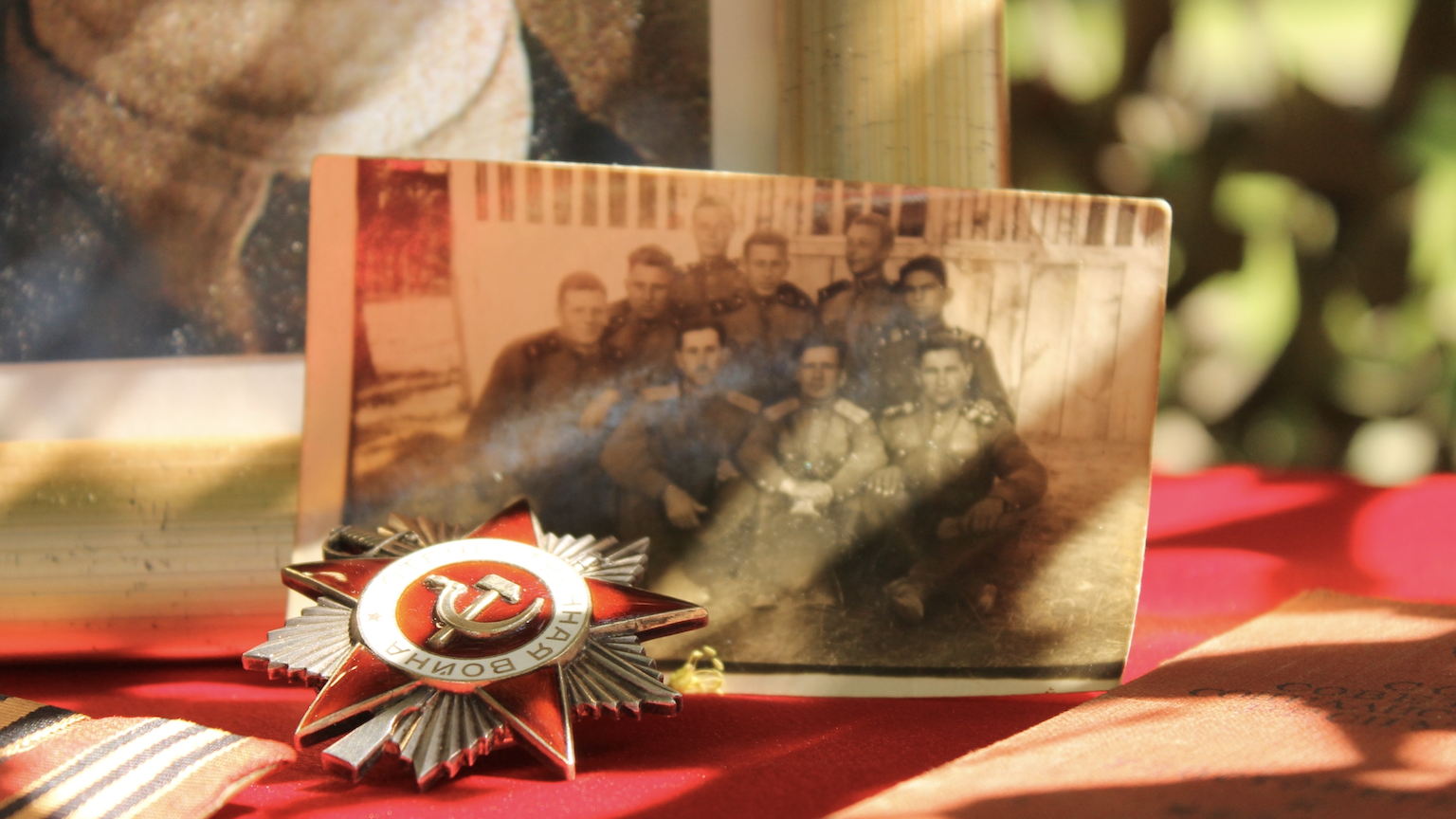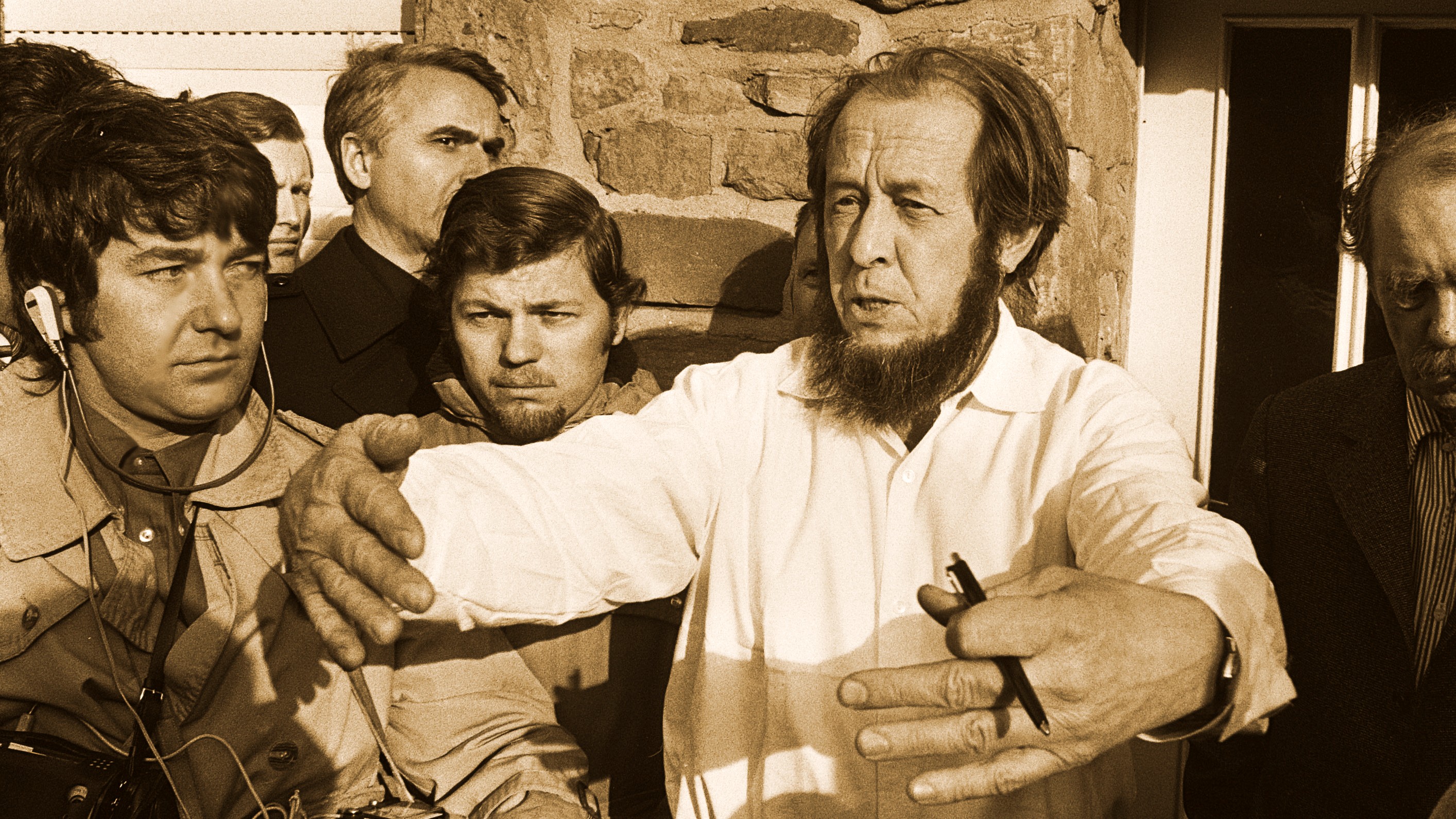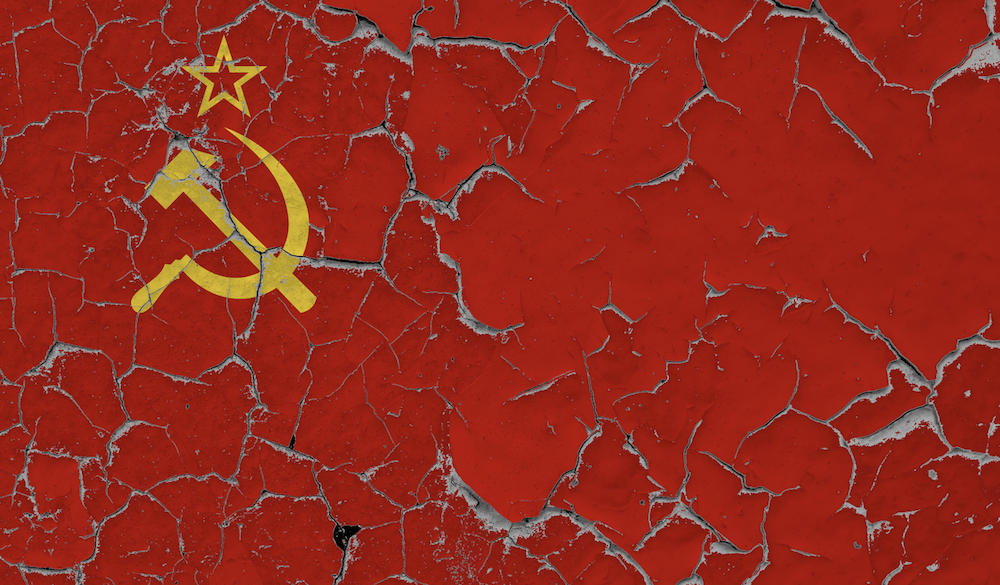Why are older Russians nostalgic for the Soviet era?

- In 1991, Mikhail Gorbachev abolished the Communist Party and dismantled the Soviet Union, ushering in a new age for the Russian people.
- But not all Russians were happy to see the Iron Curtain fall, and many indoctrinated Russians grew nostalgic for Soviet rule.
- Ultimately, this nostalgia manifested itself in the form of Vladimir Putin, who gave his country a new national identity based on Christian Orthodoxy.
In 1998, former President of the Soviet Union Mikhail Gorbachev appeared in a TV commercial for the nation’s first Pizza Hut location, symbolically situated right off Moscow’s Red Square. The commercial, designed by American ad executives to tap into the post-communist zeitgeist of its Russian consumers, featured a traditional Russian family discussing Gorbachev’s political career.
The older family members despise the former world leader for dismantling the Soviet state and disbanding the Communist Party that had founded it, while the younger ones try to convince them that Gorbachev’s decisions weren’t all bad; after all, now that the Iron Curtain had fallen, they finally had a Pizza Hut!
The commercial is as surreal as it is informative. When it first aired on Russian TV stations, audiences condemned it for celebrating the Soviet Union’s defeat at the hands of American enterprise. Today, scholars view the footage as a perfectly preserved time capsule capturing the confusion and uncertainty that characterized life in Russia in the late 1990s.
By hitting the proverbial reset button, Gorbachev left his country without a sense of identity, something which the nation is still searching for today. The shift to capitalism subverted 70 years of Soviet history almost overnight. And while some Russians welcomed it, others were unable or unwilling to cope with the many changes coming for them.
The state as cosmos
As Belarussian journalist Svetlana Alexievich wrote in her Nobel Prize-winning book Secondhand Time, Russian communism had the “insane plan” of changing human consciousness itself. The revolutionaries who founded the USSR believed that reorganizing the government wasn’t enough: If their new type of civilization were to succeed, its citizens would have to be reeducated.
When the USSR dissolved, the Russian people had effectively transformed into an ideologically unique species, one that — thanks to decades of propaganda and persecution — could only view the world through a socialist lens. The moment that lens was shattered, many Russians, especially the older generations, fell victim to an existential crisis they could neither ignore nor overcome.
“People who come out of socialism are both like and unlike the rest of humanity,” Alexievich wrote. Their vocabulary was marked by words like “execute” and “eliminate,” and they felt genuinely incomplete if they had not been able to serve their country in some way, whether by fighting in the Great Patriotic War or rebuilding their hometowns from the rubble.
Alexievich, who constructs her books from conversations with hundreds of ordinary individuals, sought out people who had been “bound to the Soviet idea, letting it penetrate them so deeply there was no separating them: the state had become their entire cosmos, blocking out everything else, even their own lives.”
The price of perestroika
Soviet citizens were propagandized with an edited version of their country’s history, one that framed Vladimir Lenin and his entourage as saintlike figures on a noble mission to guide Russians through the long “march of history.” Historical documents contradicting this narrative were rounded up and kept classified until Gorbachev’s administration released them as part of his reconstruction campaign, called “perestroika.”
Before long, magazines and newspapers that used to be under close supervision were publishing stories about how Lenin had apparently ordered no less than 1,000 peasants to be hanged so their families would “tremble from fear.” Another Bolshevik, Grigory Zinoviev, had argued that in order for the Party to assert its dominance, it would have had to execute one out of every 10 Russians.
In 1919, when one of Leon Trotsky’s generals pleaded with him to send food supplies to starving Muscovites during a siege, Trotsky replied, “That’s not hunger. When Titus was taking Jerusalem, Jewish mothers ate their children. When I have your mothers eating their young, then you can tell me you’re starving.”
For the younger generations, these revelations were the straw that broke the camel’s back. Having spent their teenage years rebelling against the state in small but meaningful ways, they now openly disavowed their heritage and embraced Western influences. But their parents, who had spent the majority of their lives maintaining that heritage, often reacted differently.
A simpler time
Alexievich’s interviews form an elaborate mosaic of complex emotions and motivations, many of which interested historians and psychologists alike. More than anything, they show how such “lost souls” — most of whom had grown up under Joseph Stalin and Nikita Khrushchev — yearned for the constant guidance offered by Soviet rule.
Once, Russians were told what to believe. Now, they had to find the truth themselves. “I buy three newspapers and each of them has its own version of the truth,” one man told Alexievich. “Where’s the real truth? You used to be able to get up in the morning, read Pravda, and know all you needed to know, understand everything you needed to understand.”
This sense of certainty and comfort extended beyond the morning paper. Alexievich’s father, for instance, once told her it had been “easier” for him to risk his life trying to stop the Nazis than it was for disillusioned youngsters to fight in the Chechen War during the late 1990s because his belief in communism was stronger than his fear of dying.
Alexievich often stumbled upon contradicting explanations. On the one hand, these proud Soviets felt that Gorbachev had undermined their self-worth, reducing their defiant communist experiment into just another cog in the global capitalist machine. On the other, Alexievich discovered in her subjects a longing for subjugation and control that their children did not share.
Conceptions of freedom
“People didn’t recognize their own slavery—they even liked being slaves,” she writes, reflecting on her own upbringing in Minsk. “After we finished school, we’d volunteer to go on [state-sponsored] trips and we’d look down on the student who didn’t want to come. We were bitterly disappointed that the Revolution and Civil War had all happened before our time.”
Throughout the 20th century, it felt as if people from all over the world needed to believe in a specific ideology in order to get through the day, while at present all we want is to be left alone and live our lives. While today’s mothers beg their children not to go to war, yesterday’s parents would have died of shame had their kids refused to fight.
“This is entirely new for Russia,” Alexievich reminds us. “It’s unprecedented in Russian literature. At heart, we’re built for war. We were always fighting or preparing the fight. We’ve never known anything else.” The continuous string of battles that were waged to defend the USSR’s future had, ironically, left Russians particularly unprepared for times of peace.
It should come as no surprise that older generations defined freedom as negative rather than positive. To their kids, being free meant being free to do something, like speaking one’s mind. But to them, freedom meant being free from something, like fear; the fear that you do not belong, that you will die having wasted your life — fears that, to be fair, run rampant in capitalist societies. A 2018 survey found that 66% of Russian respondents expressed nostalgia for the Soviet Union, with one of the top reasons being the loss of “a sense of belonging to a great power.”
A new identity
Not far into her investigative journey, Alexievich realized that the Russian people were standing at a crossroads. One path led to capitalism — freedom with suffering. The other led to communism — happiness without freedom. It’s a difficult choice to make, one that many are still debating in their heads today.
That’s not to say Russian culture has stood still since the Pizza Hut commercial. On the contrary, the country has been a witness to developments that no one — not even Karl Marx — could have predicted. Nostalgia for the olden days had led to the opening of Soviet-themed cafes, serving Soviet-style dishes made with ingredients from one side of the Iron Curtain.
The past is resurfacing in other ways, too. The cult of personality, for instance, has been recreated around Vladimir Putin. Empire-building is back on track with the 2014 occupation of Crimea, while transgressors like Alexei Navalny have been made to disappear. The Kremlin has even settled on a new national identity, one built around Christian Orthodoxy instead of communism.
In Alexievich’s book, a college professor recounts how students from the 1990s wholly believed capitalism would right communism’s wrongs. “Today’s students,” though, “have truly seen and felt capitalism: the inequality, the poverty, the shameless wealth.”
But not all young left-leaning Russian are looking to the past. The 2018 survey found that Soviet nostalgia was significantly stronger among older generations, while the Communist Party of the Russian Federation has in recent years seen an uptick in young members whose progressive ideology more closely resembles European social democracy than the hardline Stalinism of some older members.





